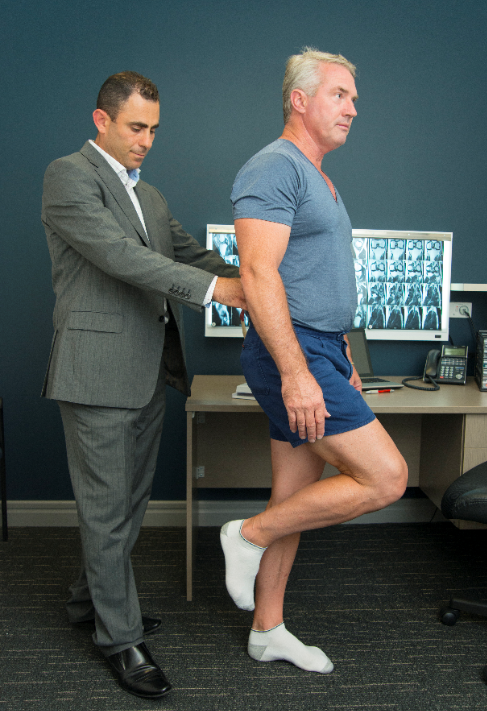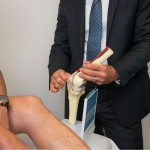
The hip is a ball and socket joint and hip replacement surgery or arthroplasty is a surgical procedure in which the diseased or damaged sections of your natural joint are removed and replaced with a new artificial joint made of metal, plastic or ceramic which is called a “prosthesis”.
It is one of the most successful surgeries performed worldwide and has been responsible for relieving pain and giving restoration of function for millions of people.
What are the different approaches used in hip replacement surgery?
Part of the process undertaken by your surgeon is to determine which approach to use when performing your hip replacement surgery.
Dr Shidiak is trained in all three of the main approaches used and will discuss with you in full the different options based on your individual health and condition. These three approaches are direct anterior, posterior and anterolateral. Dr Shidiak primarily uses a direct anterior approach which is suitable for most patients. This is when the surgical incision and entry is made at the front of the hip. It is also called “minimally invasive direct anterior approach” as this technique allows your surgeon to move the muscles aside preventing the need to cut any muscles or detach tendons to gain access to the hip joint.
What causes the hip to deteriorate?
The most common cause of deterioration of the hip joint which necessitates hip replacement surgery is due to different types of arthritis – the most common being osteoarthritis or “wear and tear” arthritis. This usually occurs in people over 50 due to ageing or if they have a family history of the disease.
Other causes include:
Rheumatoid arthritis – an inflammatory disease that affects the joints causing pain, stiffness and swelling.
Post-traumatic arthritis – caused as a result from an injury to the hip.
Avascular necrosis – generally caused by an injury or trauma to the hip resulting in impeded blood supply to the joint.
What are the symptoms that indicate I might need a hip replacement?
If you have been diagnosed as having mild to serious arthritis in your hip joint and are experiencing pain that interferes with your daily living such as:
- Difficulty walking and climbing up stairs.
- Find difficulty in bending or to get in and out of chairs or cars
- Experiencing moderate to severe pain while your resting
- Pain interfering with your sleep
- Impeded range of motion during everyday activities
- Limping
- Symptoms can no longer get relief from non-surgical options such as anti-inflammatories, physical therapy or steroid injections
Who is a suitable candidate for hip replacement surgery?
There is no real classification based around age or activity level. Although previously hip replacement surgery was mainly between the ages of people between 60 and 80, advancements in surgical techniques and the longevity of prostheses means that hip replacement surgery is now a suitable option for younger patients who suffer from limited mobility and pain as a result of a diseased joint.
The time to consult with your specialist regarding hip replacement surgery is when you are unable to find pain relief from non-surgical treatment methods and your everyday living is being negatively impacted or limited.
What is the goal of hip replacement surgery?
The goal of hip replacement surgery is the relief of pain and the restoration of mobility to improve your ability to continue to participate in your normal day to day activities.
If you find you are unable to get relief from pain and your mobility is impeded, please call our office to arrange for a consultation.
Dr Shidiak will be able to assess your condition and advise if you are a suitable candidate for hip replacement surgery.


